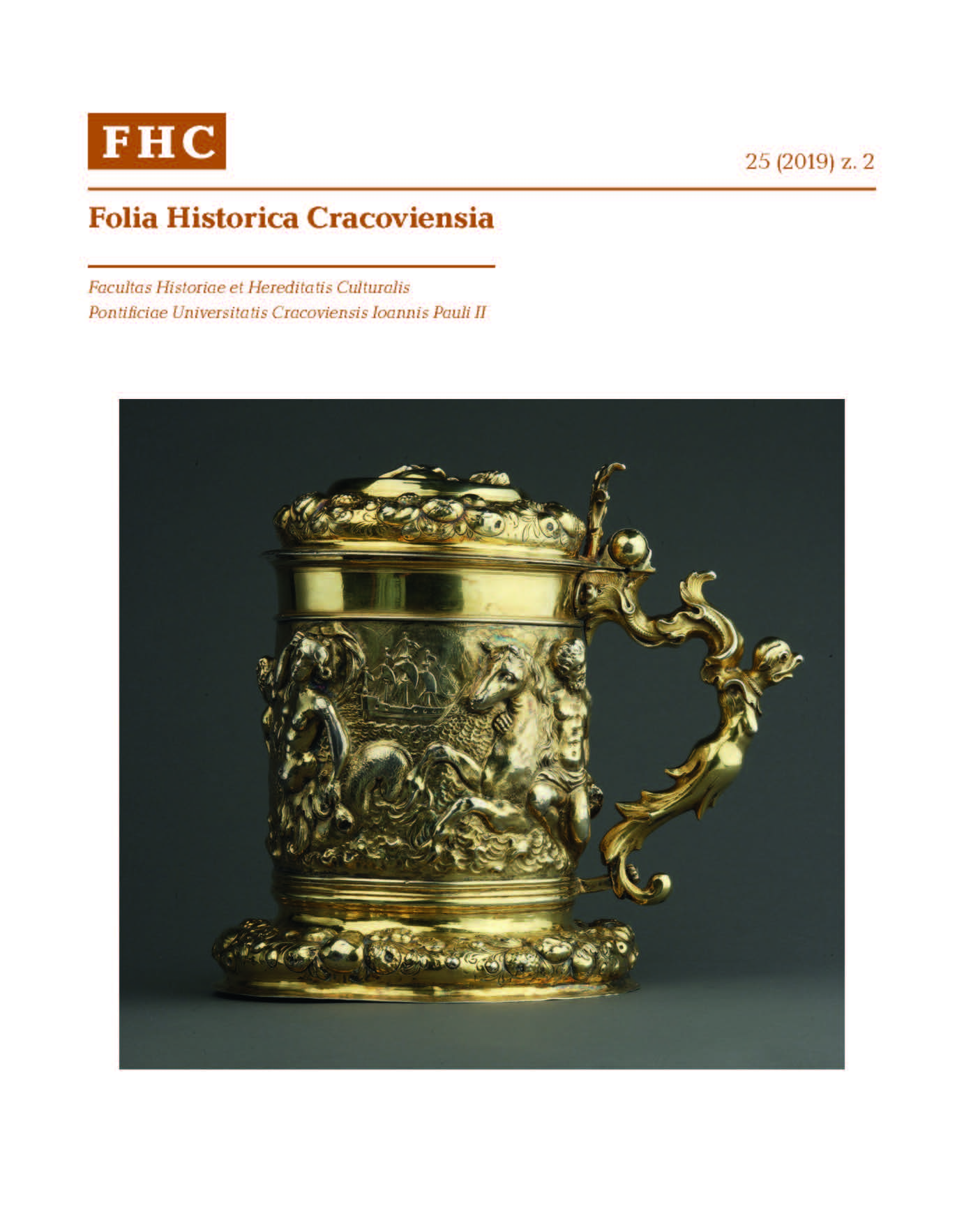Galicia in the realm of Habsburg mythology
DOI:
https://doi.org/10.15633/fhc.3602Klíčová slova:
Galicia, Habsburg dynasty, mythologyAbstrakt
The disappearance, breakup, or perhaps the dissolution of the Habsburg monarchy into nonexistence in the last several days of the “Great War” did not mean that time and history disappeared without a trace. For it left a rich and varied heritage that consists of intertwined collective and cultural memories that transform over time into a mythology. An important place in that Central-European, Habsburg mythology is taken by the myth of Galicia. Evidence of its existence and vitality is its emergence several years ago, as unexpected as it was intensive, in the commercial realm. That was made possible by falling back onto heritage, remembrance, and myth, and not by – even an elementary – knowledge of the reality under this banner. The Kingdom of Galicia was wiped out from the territory it used to occupy by the disaster of two wars. Yet a memory of it, evidently strongly rooted, managed to survive that unfavourable time and today it is still very much alive, even though much transformed. The time that has passed, together with all the historical tremors during that time, has resulted in a kind of deconstruction from which a new, mythical form of Galicia emerged. It began to live its own peculiar life which has hardly anything in common with the original. The realm in which its presence is best visible today is what can broadly be called “commercial use”. The cultivation of the current, predominantly commercial functionality of Galicia is only rarely accompanied by a reflection on the sense or reason for the cherishing of its mythology, which is what is actually taking place. Are the material benefits – because there must be some – a sufficient justification for the glorification of the Austrian partition in contemporary Poland?Reference
N. Davies, Zaginione królestwa, Kraków 2010.
Europa Środkowa: mit czy rzeczywistość? “Pressje”. Teka druga Klubu Jagiellońskiego, Kraków 2002.
Galicia. A Multicultured Land, ed. by Ch. Hann, P.R. Magocsi, Toronto, Buffalo, London 2005.
S. Grodziski, Habsburgowie: dzieje dynastii, 2nd ed., Kraków 2013
S. Grodziski, W Królestwie Galicji i Lodomerii, Kraków1997.
P.M. Judson, Imperium Habsburgów: wspólnota narodów, Warszawa 2017
C. Magris, Mit habsburski w literaturze austriackiej moderny, Kraków – Budapest – Syracuse 2019.
Mit Galicji, ed. by J. Purchla, W. Kos et al., Kraków 2014.
M. Pollack, Topografia pamięci, Wołowiec 2017.
J. Ronikier, Mit i historia: mitotwórcze funkcje podręczników szkolnych, Kraków 2002.
H. Wereszycki, Pod berłem Habsburgów: zagadnienia narodowościowe, 2nd ed., Kraków 2015.
E. Wiegandt, “Austria felix” czyli o micie Galicji w polskiej prozie współczesnej, Poznań 1997.
Stažení
Publikováno
Číslo
Sekce
Licence
Autor prohlašuje, že mu přináleží autorská práva k dílu a že nejsou omezena v rozsahu spadajícím pod toto prohlášení a že je dílo originální a nenarušuje autorská práva jiných osob.
Autor povoluje Papežské univerzitě Jana Pavla II. v Krakově bezplatné, nevýhradní a časově neomezené využívání díla, tedy:
- záznam a reprodukci: vytváření exemplářů díla tiskařskou, reprografickou technikou, magnetickým záznamem a digitální technikou;
- obchodování s originálem nebo exempláři, na nichž bylo dílo zaznamenáno (uvedení do obratu, zapůjčení nebo nájem originálu nebo exemplářů, veřejné vystavování, zobrazování a také veřejné zpřístupňování díla tak, aby k němu mohl mít každý přístup na místě a v čase, který si vybere);
- začlenění díla do kolektivního díla;
- poskytnutí sublicence Papežskou univerzitou Jana Pavla II. v Krakově Creative Commons Uznanie autorstwa-Użycie niekomercyjne-Bez utworów zależnych 3.0 Polska
Papežská univerzita Jana Pavla II. v Krakově zpřístupňuje dílo na platformě časopisu patřící vysoké škole, na základě licence Creative Commons Uznanie autorstwa-Użycie niekomercyjne-Bez utworów zależnych 3.0 Polska. Tím také opravňuje všechny zájemce k využití díla za následujících podmínek:
- bude uveden autor a název díla,
- bude uvedeno místo publikování (název časopisu a internetová adresa na původně publikované dílo),

